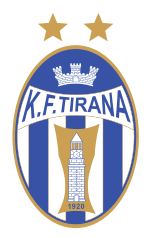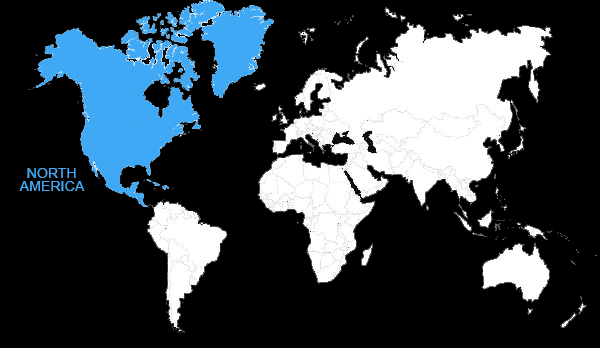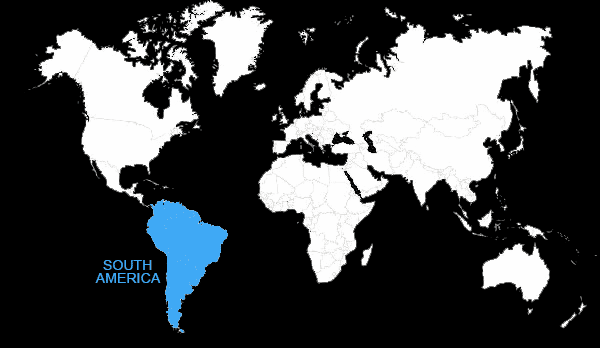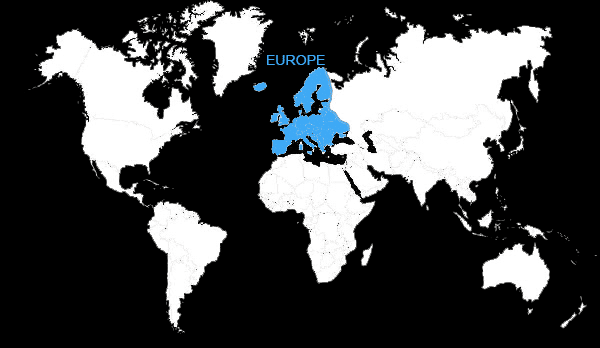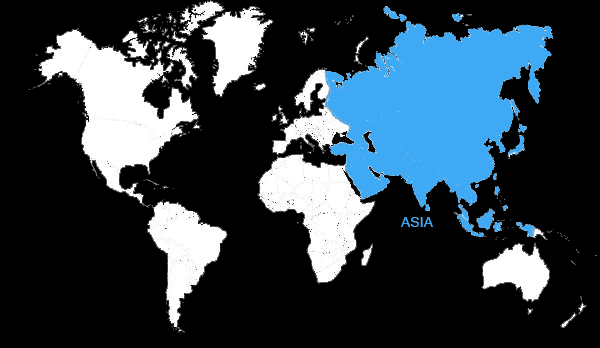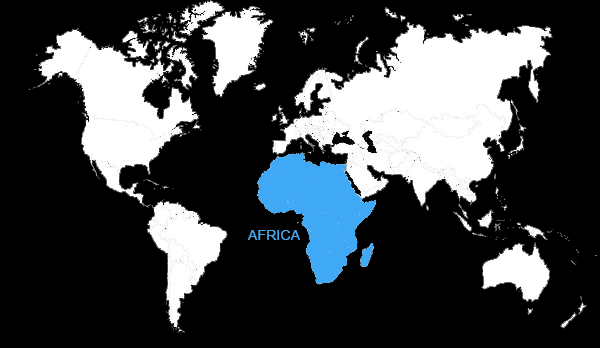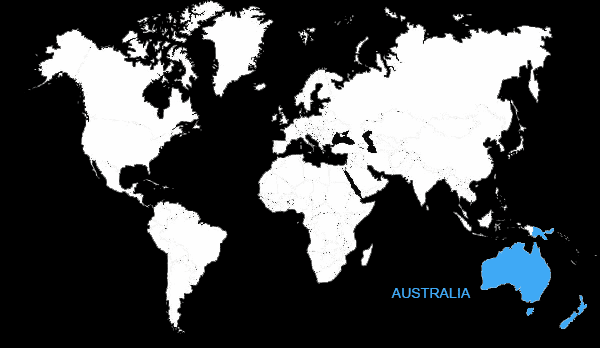KF Tirana Tryouts
KF Tirana is an Albanian professional football club based in the country’s capital city, Tirana, Albania. The club currently plays in the Kategoria Superiore, the country’s highest football league in Albania.
KF Tirana Youth Development System
KF Tirana Recruitment Trials
At the time of this writing, there are no official publications on KF Tirana trials. Please come back at a later date while we monitor this club or click here to visit their official Facebook page for the latest updates.
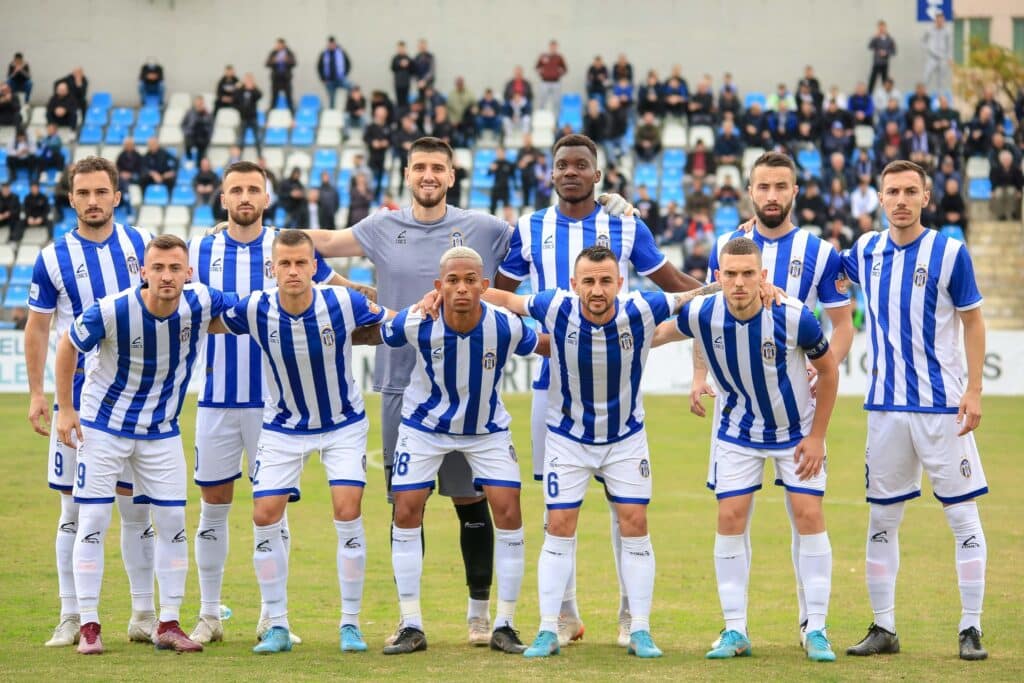
EXPLORE MORE CLUBS!
Explore more professional clubs by continent.
KF Tirana History
In 1911, Tirana made its debut at the Fier Fair Football Tournament, which is considered to be the first-ever championship played for in the country of Albania. The city was represented by a team that is thought to have been the KF Tirana franchise’s ancestor. The team was dominant throughout the competition, earning victories over Elbasani and Kavaja to advance to the championship game. There, they defeated Peqini by a score of 6-1 to become Albania’s very first ever champions in any sport. The Albanian Football Association has not yet given the tournament its stamp of approval to hold the competition.
On August 15, 1920, Tirana was formally established as a city. Palok Nika was selected to serve as the first coach. In the beginning, the club was known as Sportklub Tirona; however, they eventually changed their name to Futboll Klub Tirona. In October, the team competed against Juventus Shkodr in the venue of Shallvare in what was their first official match.
In 1925, the city of Tirana competed in their first international match against a Yugoslav team from the city of Crnogorac Cetinje in Montenegro. On August 16, 1927, which was the seventh anniversary of the formation of the Agimi Sports Association, the club’s name was changed to Sportklub Tirana, which would be commonly referred to as SK Tirana. Since that time, the club has been known by its short form, SK Tirana. Teki Selenica was serving as president of the club on that particular day.
In 1930, Tirana took part in the newly established Albanian Football Association’s first officially recognized football competition, which took place in Albania. The competition was held in Tirana. The team was dominant throughout the competition, advancing to the championship match by winning five matches, drawing four matches, and losing just one match. They finished in a tie for first place with Sknderbeu Korc, but had a better goal difference than the other team. Tirana faced Sknderbeu Korc in the championship final, but Sknderbeu Korc declined to play as a form of protest against the favoritism shown toward Tirana by both the competition and the Albanian Football Association. Following the conclusion of the games, the club was given the title of champion.
The following year, the club added several new players to its roster, including goalkeeper Vasfi Samimi, forward Sabitoku, defender Muhamet Agolli, and center Halim Begeja. The championship was run in a different fashion after the teams were split up into two groups. Tirana was placed in Group A, and after playing three matches, they were able to accumulate five points and finish in first place. The team’s performance in the championship match against Teuta Durrs, the winners of Group B, was a 1–1 draw in the first leg at home, but they were able to secure a 3–0 victory away from home to defend their title.
Tirana maintained its position as the dominant force in Albanian football even into the following season, despite the fact that the format of the championship was altered for the fourth time. Tirana had it easy in a group where every club would play each other twice and the winner would be determined by who finished on top of the league. They finished the championship unbeaten, winning five matches and drawing three, and won the title for the third year in a row, which further cemented their place in history as the first club to dominate football in Albania. Tirana finished the championship unbeaten, winning five matches and drawing three. In 1933, the club finished in a disappointing third place out of six, behind Bashkimi Shkodran and the winners Sknderbeu Korc. This was the first time in the club’s history that they had failed to win the championship. It turned out to be a transitional period as the team was able to make a strong comeback in the 1934 Championship. In a competition with seven teams, they finished five points ahead of Sknderbeu Korc, who came in second place.
Tirana was able to successfully defend their championship in 1936 and 1937, thanks in large part to the efforts of the ethnic Albanian forward Riza Lushta, who was honored as the top goalscorer in both years.
Due to the fact that the Albanian Football Association did not hold its championship in 1938 and that World War II began in 1939, this match was the final competition that was held in Albania before the conflict.
In 1939, Italy invaded Albania; Giovanni Giro, a loyal trustee of Foreign Minister Galeazzo Ciano, was in charge of organizing the first football competition under Victor Emmanuel III. It was called the Turneja Kombtare E Footbollit Pr Ndeshjet E Trofeut T Liktorit. Giovanni Giro was also in charge of organizing the Albanian national team for the competition (National Tour of Football for the Matches of the Lictor Trophy). Tirana competed in the tournament and advanced to the semifinals by advancing past the first round by eliminating Dragoj Pogradeci by a score of 9–0 on aggregate. After defeating Sknderbeu Korc in the semi-final match with a score of 3–0, the team advanced to the championship match against Vllaznia Shkodr. Tirana was victorious in the championship match, which took place on September 30, 1939 at the Shallvare field in the capital city. They prevailed by a score of 6-5.
The fascist regime repeated its tournament the following year, but this time it used a group format instead of the traditional single elimination bracket. The teams competed in one of two groups based on their geographical location. Kryeziu and Lushta, two of the most important players for Tirana, both moved to Italy to play for Bari and Roma, respectively, after leaving Albania. Tirana battled Vllaznia Shkodr to a 2–2 draw in the first match, and then went on to defeat Elbasani 3–0 at home in the second match. The rest of the campaign did not prove to be fruitful as Vllaznia finished on top of the group ahead of Tirana and advanced to the championship finals, where they defeated Sknderbeu Korc 11–1 on aggregate to win their first national championship, which is still unrecognized by the Albanian Federal Association to this day.
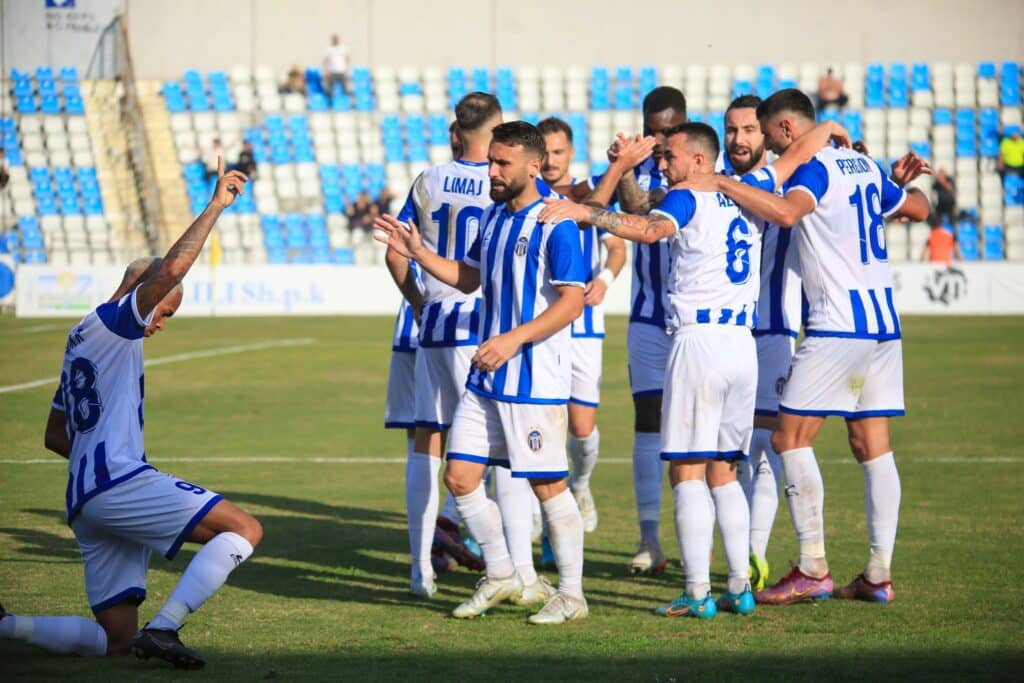
The championship was postponed in 1941 but resumed the year after, at which time there were also three clubs from Kosovo participating. These clubs from Kosovo competed in the northern section along with the previously crowned champions Vllaznia Shkodr and Tirana competed in the group for the new middle section, and the clubs from the south competed in their own group. Only players who were born between 1921 and 1925 were eligible to compete in the event, which meant that the age limit for participants was set between 17 and 22 years old. This decision was made in accordance with a peculiar ruling. However, the vast majority of clubs did not adhere to this rule, and senior players were still able to take part in the competition. After earning a 5–1 victory over Elbasani and a 1–1 draw against Teuta Durrs, Tirana advanced to the semifinals of the competition. The team faced Prizreni in the semi-final match; the first leg ended in a draw with the score 2–2, while Tirana prevailed with a 2–1 victory in the second leg. Therefore, the group competed in the championship game against Vllazna Shkodr on June 29. They were victorious. Following the conclusion of the regulation time with a score of 1–1, the Italian referee Michele Carone asked both teams to play additional time consisting of two halves of 15 minutes each; however, Vllaznia declined this offer. Tirana was declared the winner of the competition and the match, which was played two days after the final, and awarded a score of 2-0.
The club was victorious in two of the three national championships that were played during World War II; however, in March 2013, the Albanian Football Association made the decision to refuse to recognize those victories. The AFA justified this decision by arguing that the championships were not legitimate because the fascist regime was responsible for organizing them rather than the AFA.
Following the conclusion of World War II, the Albanian Football Association was tasked with ensuring that footballing activities were carried out in the same manner as they were prior to the war. Tirana was assigned to Group B for the championship that took place in 1945. The team breezed through the group stage, racking up 16 points from their 10 contests, and as a result, they earned a spot in the championship game, where they met Vllaznia Shkodr once more. They were unable to take advantage of the opportunity to win another championship because they lost both matches 2–1.
Tiran would quickly become a victim under the communist regime led by dictator Enver Hoxha. In the beginning of March 1946, the ruling communist Politburo had instructed the club to change its name to 17 Nntori in honor of the Liberation of Tirana which took place on November 17, 1944. This was done in honor of the date that Tirana was liberated. The decade that followed saw the club endure appalling treatment at the hands of the regime, which was highlighted by the establishment of a privilege system for the newly formed communist backed teams Partizani Tirana and Dinamo Tirana.
The decade that followed would be marked by the same oppressive environment, which would become even more oppressive after the establishment of two system-privileged teams that would replicate the successes of their counterparts in the countries that formerly comprised the Soviet Union, the former Yugoslavia, and the other eastern European nations. These teams were known as Partizani, which represented the Defense Ministry, and Dinamo, which represented the Internal Affairs Ministry. Dozens of Tirana’s most talented players were compelled to play for either Partizani or Dinamo against their will after being “convinced” to do so. As a direct consequence of this, “17 Nentori” had a difficult time remaining at the top during the years 1947–1957. Nevertheless, the team was able to make up for some of the lost ground during the latter half of the 1950s by partially replacing some of the first choice players in its line-up.
Tirana continued to have a productive football program from 1958 until 1964, and the city finished the championship in third place an average of nine out of ten times. These years served as a prologue to what was going to take place in the future: Tirana would once again bask in the glory of its pre-war heyday thanks to the services provided by the legendary coach Myslym Alla. Tirana was crowned champions of Albania at the conclusion of the nation’s 28th national championship, more than twenty years after the city last held the title.
The following year, the team was able to achieve the same level of success; however, this presented an obvious challenge to the generals and heads of Dinamo’s secret service.
The date was June 24th, 1967. The derby between Tirana and Partizani, which was the 19th round of the 1967 Championship, was played. The match had just been played to completion and ended with a score of 2:1. Fans were leaving the stands in a calm manner, and as players had already exited the field and were making their way to the locker rooms, two players from opposing teams had just finished a verbal exchange that was resolved right then and there.
When I woke up the next morning, I couldn’t believe what I was reading in the newspaper headlines: “Due to the direct decision of AFA, Tirana and Partizani forfeit the match 0:3, are deducted 3 points each, and will thereafter lose by default remaining matches!” A lot of people were asking: “what went wrong, the match was played on the field, it generated a lot of feelings, and the spectators acknowledged the outcome of the contest. What did the teams do wrong that warranted such severe punishment?”
In spite of this, it became abundantly clear in the days that followed that the decision to expel both clubs originated in the Ministry of Affairs and was then communicated to the AFA for implementation. They finally found an excuse in a minor verbal exchange that occurred between two players after the match. This was necessary because Partizani was eliminated from title contention due to a significant point gap, and the only way Dinamo could win the title was by punishing Tirana, who are currently in first place in the table. The truth is that they simply were unable to accept the fact that KF Tirana was on the verge of achieving the third title in a row, rather than Partizani or Dinamo. Sknder Jareci, the manager of Dinamo, refused to take the championship trophy on the traditional lap of honor on the day that it was handed over because he believed that Dinamo did not merit the title of champions.
Dinamo would automatically gain enough points to pass Tirana and win the title if they forfeited that match and lost the three remaining matches after that. Dinamo, the team that won the Albanian championship in that year, are still not recognized as winners by UEFA because it was such a scandal for the Albanian football association. The following year, UEFA banned Dinamo from competing in the European Cup because of the farce involving their disqualification. Meanwhile, Dinamo’s opponents, Braunschweig, were given a walkover and eventually advanced to the quarterfinals of the competition.
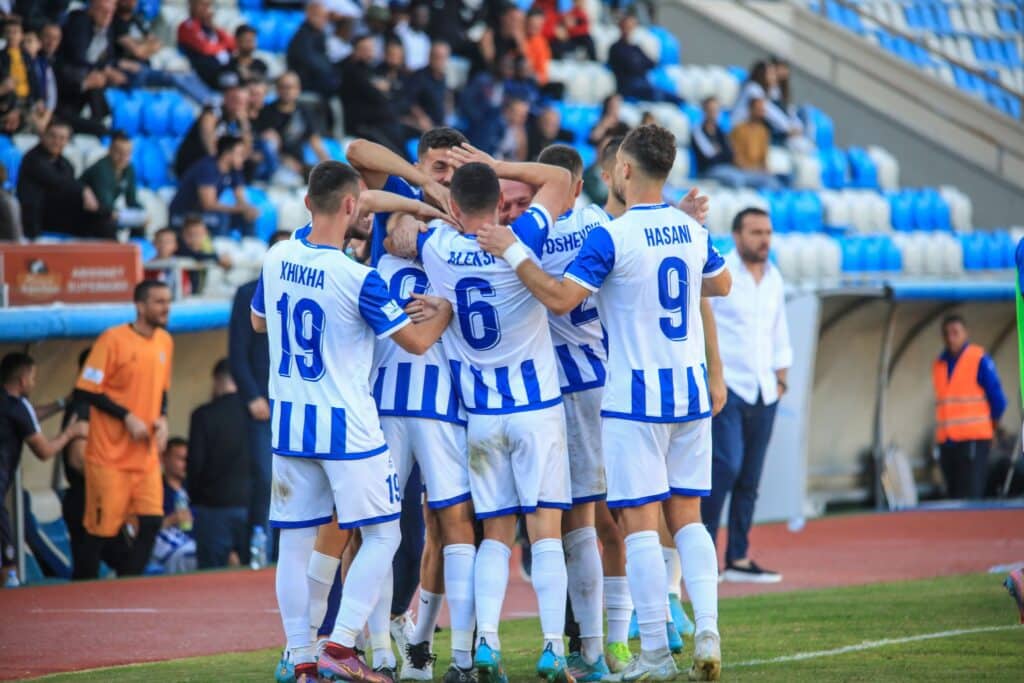
Tirana went on to win the championship the following two years in a row with ease, dropping a total of only three games during the 1968–1969 season and just one during the 1969–1970 campaign.
Tirana had a tough time maintaining its position as a top city throughout the seventies, with a best-case scenario of coming in second and a worst-case scenario of placing thirteenth. Despite this, the club has been victorious in the national cup twice. The older players’ generation finally reached the point in their careers where they could no longer compete, and this could only signal the end of a very successful era. On the other hand, this time the unsuccessful spell would not last for very long. Tirana finished the 1981–82 season as champions, and they went on to win the championship three more times during the 1980s: in 1984–85, 1987–88, and 1988–89. Additionally, Tirana won the Albanian Cup in 1982–83, 1983–84, and 1985–86. Additionally, the club was successful in European club competitions, advancing to the round of 16 four times in the 1980s and reaching the quarterfinals three times in the European Cup alone. The core of the Albanian national football team was comprised of a number of players from this team, including Agustin Kola, Arben Minga, Shkalqim Muca, and Mirel Josa, amongst others.
Tirana was given back its old name in August of 1991, which was less than a year after the fall of communism in Albania. At the same time, the entirety of Albanian society went through a period in which profound changes were brought about. The vast majority of the country’s most talented athletes emigrated abroad in search of a more financially stable club that would sign them to a contract. It would appear, however, that the club could not tolerate being too far behind the leading spots for very long. The team got back on track by beating Teuta Durrs 1–0 overall to win the Albanian Cup during the 1993–1994 season. This victory marked the return to the team’s previous winning ways. Shortly after that, in January 1995, the team also won their first Albanian Supercup trophy by defeating Teuta Durrs 1–0 at Qemal Stafa Stadium. This was the team’s first trophy win in the competition. A couple of months later, they won their 15th championship by finishing in first place by a 12-point margin over Teuta Durrs, who came in second place.
This championship was followed by another one won by Tirana in the 1995–1996 season. This time, Tirana won it just one point ahead of Teuta Durr’s, who had won it the previous season.
The team also won the cup during that season, making it the second time in history that they have won both the league championship and the cup. After that, the 1998–1999 season brought about yet another domestic double. Tirana maintained its position as the dominant force in Albanian football in the years that followed, winning 10 of the most recent 18 championships in the country. The team also dominated in the domestic cup competitions, adding five Albanian Supercups and three Albanian Cups to their already impressive collection of trophies.
After a successful season in 2006–07, during which the club won the Albanian Superliga in a relatively easy fashion, the team started having trouble getting good results in their games. They started the new campaign by being knocked out of the UEFA Champions League by NK Domale. Tirana was only able to finish in sixth place, which is their worst finish since 1993 and despite the fact that they won the Albanian Supercup against Besa Kavaj. The team was defeated by Vllaznia Shkodr in the final of the cup competition.
Tirana was able to regain its footing the following year and win the championship for the 24th time in the club’s history, thanks in large part to the efforts of striker Migen Memelli, who finished the season with 30 goals scored.
They made it all the way to the final of another cup, but ultimately lost to Flamurtari Vlor, their opponent this time. In the following years, Tirana has a mixed run of luck. Although they are unable to win the championship, they continue to dominate in the domestic cup competitions, taking first place in the Albanian Cup in 2010–11 and 2011–12, as well as the three other Albanian Supercups in 2009, 2011, and 2012. During the 2010–11 season, the club’s chief and president were embroiled in a number of major controversies off the field, which caused a delay in the payment of the players’ wages and even prevented some of the players from receiving their salaries.
The municipality of Tirana initially held a 100% stake in the club, but there is the possibility that any future private sponsors and donors could own stocks in the club. On October 12, 2011, the city council of the Municipality of Tirana voted through a unanimous decision to change the status of the club from a municipality owned one to a shareholder owned one, under the name KF Tirana Sh.A. This decision was implemented with the club operating under the name KF Tirana Sh.A.
The year 2013 marked the beginning of a period of dissatisfaction for the city of Tirana. During the 2013–14 season, the club was in grave danger of being demoted for the very first time in its illustrious history. At the end of December 2013, the team was ranked in last place, having earned only 10 points from a total of 13 matches. They were also seven points away from the zone that indicated they were safe. However, with Gugash Magani at the helm as manager and a robust transfer market, the team was able to make a comeback and eventually finished in sixth place, narrowly avoiding relegation in the game immediately before the championship. This allowed private donors to invest in players, facilities, and youth teams. On June 26, 2014, the Tirana city council approved a proposal to give private donors a 66% stake in the club’s assets for the next 18 years. At the time, the club’s assets were held by Refik Halili and Lulzim Morina.
Tirana started the 2014–15 season with high expectations and was in contention for the title early on in the season.
However, in the second part of the competition, the team’s performance deteriorated, and they ended up finishing in fifth place. Tirana was eliminated from the cup competition in a controversial manner by Laci in the semi-final, losing 1–0 on aggregate. In the end, Laci prevailed over Kuksi in the championship match, which resulted in Tirana being eliminated from the Europa League once more. During the 2016–17 season, the club was demoted to the lower division. Tirana went from being a title contender halfway through the season to dramatically falling all the way down to the bottom of the league for the very first time in their history. After a scoreless draw on November 1 against Vllaznia Shkodr, Ilir Daja was relieved of his duties as head coach and replaced by Mirel Josa, who had previously held the position. The relationship between the club and the fans was severed after the club allowed their longtime rivals Partizani Tirana to play at Selman Strmasi Stadium. The fans were opposed to such an agreement, and as a result, they boycotted the matches for the remainder of the season. After that, Tirana went winless in their next 15 matches before beating Korabi Peshkopi by a score of two to zero. The official confirmation of their relegation came on May 27 after they played Vllaznia Shkodr in a game that ended in a goalless draw. Both teams were fighting for their playoff lives at the time. Tirana fared much better in the cup competition, capturing their 16th trophy on May 31 at Elbasan Arena by virtue of a 3–1 victory over Sknderbeu Korca. Because of this, Tirana was able to participate in European competitions after an absence of five years.
Before the start of the new season, Tirana kept the majority of their players.
Zé Maria, who played for Brazil in the national team, has been named the new manager of the club. The team that was eliminated from the UEFA Europa League by Maccabi Tel Aviv of Israel. After defeating Kuksi by a score of one goal to zero in September 2017, Tirana was awarded another trophy, this time the 11th Albanian Supercup. In addition, they established a new benchmark by becoming the first team from the Albanian First Division to triumph in the Supercup. Tirana was able to maintain its dominant position in the league with resounding victories at both its home and away matches. The Club was successful in achieving its goal of a rapid promotion in Superliga with three rounds still remaining in the season. On May 16, Tirana defeated Kastrioti Kruj to win their first ever title in the Albanian First Division. The match ended with a score of two goals for and zero goals against.
The 2019–20 season marked Tirana’s 100th anniversary as a club, and it was also the season in which they won their 25th championship.
This was the first title to be released after an absence of 11 years.
During the course of the season, the team defeated Partizani twice, breaking their winless streak of 18 matches against them; their victory by a score of 5–1 in February 2020 was their most lopsided victory since 2005.
Ndubuisi Egbo took charge of the team beginning with the 13th matchday. He was highly praised for his work and became the first African coach to win a league title in Europe. In addition, he was the first African coach to win a league title in Africa. The team was able to make it all the way to the championship game of the cup, but they ended up losing to Teuta by a score of 2-0.
Tirana was also successful in Europe, collecting over 1.5 million Euros in reward from participation, and advancing as far as the play-off stage of the Europa League. This success came hot on the heels of Tirana’s recent championship win. The club had the golden opportunity to start a cycle of dominance for years to come because they had a healthy budget and already had players with a champion trophy and quality in their hands. Club, on the other hand, was not successful in establishing such a status. They were unable to prevent the departure of key players and did not successfully replace those players with comparable or superior components. The pandemic caused by COVID-19 also contributed negatively in a variety of ways. Due to the lack of available substitutes, the squad suffered from the injuries and absences of a large number of players while traveling. As a consequence, the outcomes were unsatisfactory, particularly in the first half of the season. Even though they were the primary factor in Tirana’s meteoric rise from promotion all the way to the highest title in just two years, head coach Egbo and director Laci left the club in the most unpleasant way possible. This occurred despite the fact that they were the club’s most important success factor. It was the day that Tirana was eliminated from the Cup by an inferior opponent just at the second round, and it was at that moment that club found the “alibi” to fire them. The disgraceful manner in which the club was eliminated from the Cup did not in any way make it possible for the club to reflect positively in the championship, and the January players’ market did not contribute to the quality of the team because January typically provides few alternatives. Tirana finished fifth in the League, missing out on a spot in Europe as a result, despite the fact that they improved their play and had more success in the second half of the season. They were led by an ambitious coach in Shehi.
Almost immediately, it was decided that Coach Shehi would remain with Tirana for the upcoming season. This time around, the club did not make the same mistakes it did in the past when it approved and approached players based on video clips or distance. In addition to this, they stopped looking for players from Africa and severed their partnership with the agent Como. Osmani, who was recently appointed to the position of director, along with Muka, who was appointed to the position of director of the academy, were both instrumental in the recruitment of new players, the majority of whom came from within the Superior League, North Macedonia, and Kosovo.
Long-term contracts were also signed by the newly acquired players. Starting with the talented Seferi, who was an established forward in the year before, and also including Xhixha, who arrived from KF Laci as a free player after his contract with them had expired. Other notable players like Ennur Totre, Vesel Limaj, Visar Bekaj, and Ardit Toli were also tasked with playing for the club. Shehi, the coach, deserves a lot of credit for successfully managing the newcomers, integrating them with the rest of the team, and ensuring that everyone is contributing to the team’s overall success. Shehi also deserves credit for promoting players from the youth team, which is another accomplishment worthy of recognition. Names like Gjumsi, Prgjoni, Nikqi, and Beshiraj, amongst others, have made their mark on the accomplishment, and they have promoted themselves as a bright future.
After that, the results started coming in. Tirana established a consistent point advantage over the other teams by winning the matches that were most important to their success. The team’s ability to show its character, quality, and power even after suffering a few defeats was another positive aspect of the situation. In the fourth round, white and blues took the lead and did not relinquish it until the very end. When the point differential reached 16, Tirana was in the enviable position of being able to kick back and accept draws or defeats while still attempting to play more of their younger players in meaningful minutes.
Tirana was able to secure their 26th and final championship victory with three rounds to spare. Now that things have settled down, the club can concentrate on getting ready for their trip to Europe, as well as putting the finishing touches on the remaining contracts and building the roster for the upcoming season. Tirana, who were completely preoccupied with their pursuit of the championship, were unsuccessful once more in their participation in the Cup, and for the second season in a row, they were eliminated before even reaching the quarter finals.

